CNBC/Change Research Poll in Arizona, Florida, Michigan, North Carolina, Pennsylvania, and Wisconsin: April 2-3, 2020
Key Takeaways
- 65% of voters were seriously concerned about the coronavirus compared to just 20% of voters who were seriously concerned in our survey three weeks ago
- 41% of voters believe they are financially unprepared for the economic impact of coronavirus, and 30% of voters already report having lost wages due to coronavirus
- When asked about what concerned them most about coronavirus, respondents were more concerned about health and safety than finances or the economy
Change Research conducted a poll of 2,448 likely general election voters in Arizona, Florida, Michigan, North Carolina, Pennsylvania, and Wisconsin between April 2-3, 2020 on their thoughts, beliefs, experiences, and policy preferences with respect to the coronavirus crisis.
Read Senior Pollster Nancy Zdunkewicz’s key findings memo here.
Three weeks ago, a majority of voters said that the U.S. economy and the U.S. job market were in good or excellent condition and were confident and optimistic about the national economy and their own personal finances; just 20 percent of voters were very seriously concerned about the coronavirus and voters were more concerned that the response to the virus would lead to a recession than that they would get sick.
Our most recent poll found nearly nine-in-ten voters are now seriously concerned about the coronavirus, with two-thirds very seriously concerned. Two-thirds of voters now say that we are in a recession, 48% say that it will be worse than the Great Recession, assessments of the U.S. economy and job market are net-negative, and voters are overwhelmingly pessimistic about what the next year holds.
Personal Impact of Coronavirus
An overwhelming 82% of respondents reported experiencing low inventory at stores and online. 53% reported being impacted by school closures and 27% reported experiencing fewer hours at work, compared to just 10% and 5% respectively March 10-11.
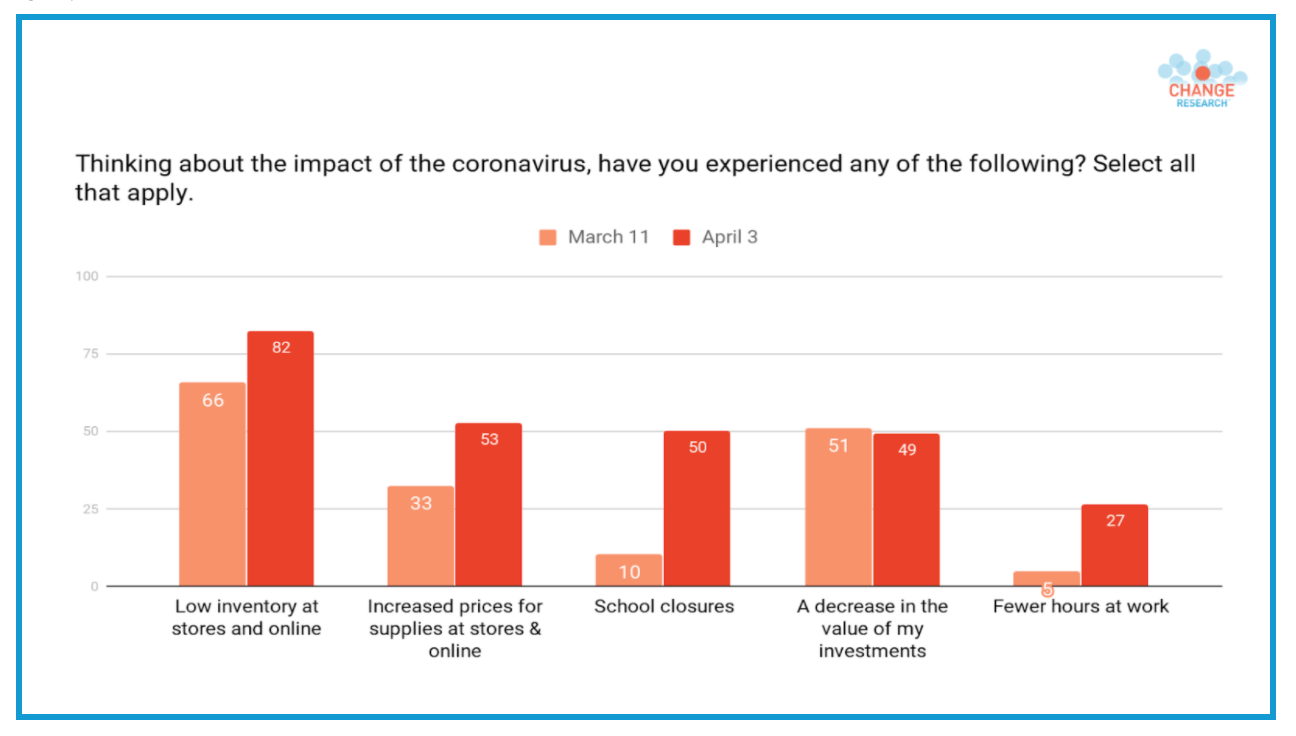
30% of voters report lost wages, 11% report having lost a job, and 4-in-10 voters say they are personally unprepared for the economic fallout of COVID-19. Almost as many say they would only be able to afford food, housing and other essentials for a month or less should they lose their source of income.
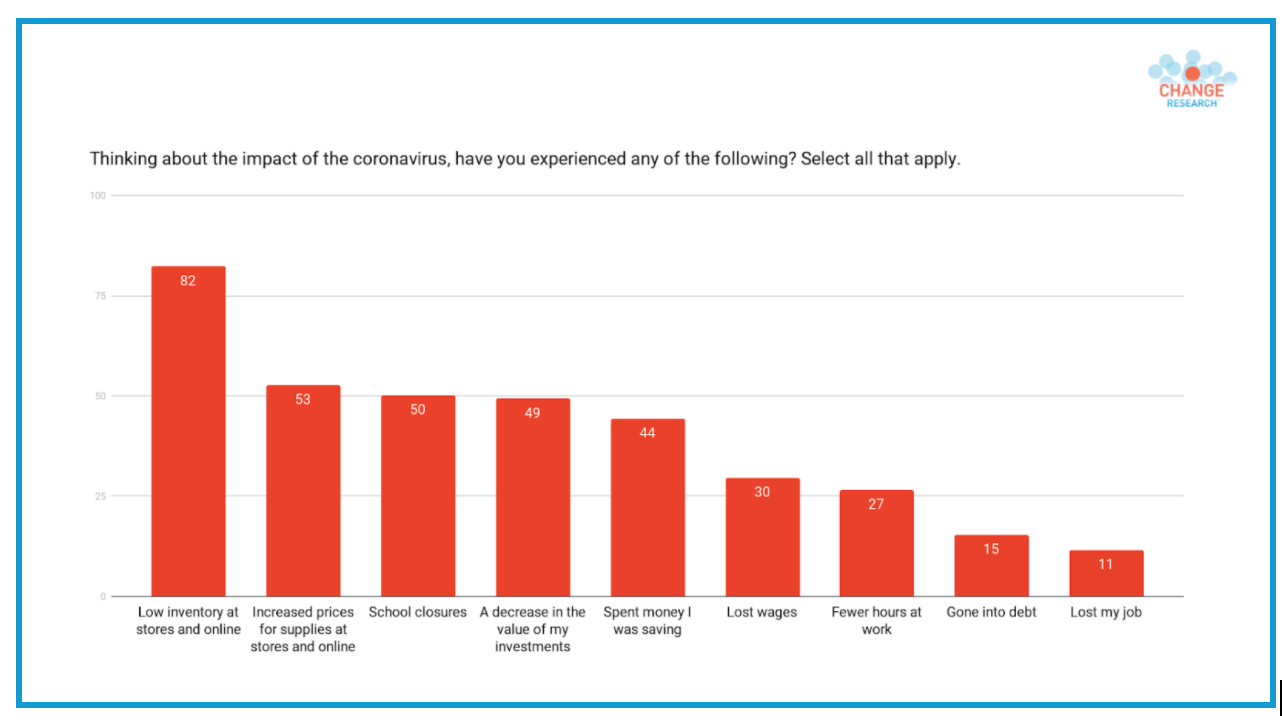
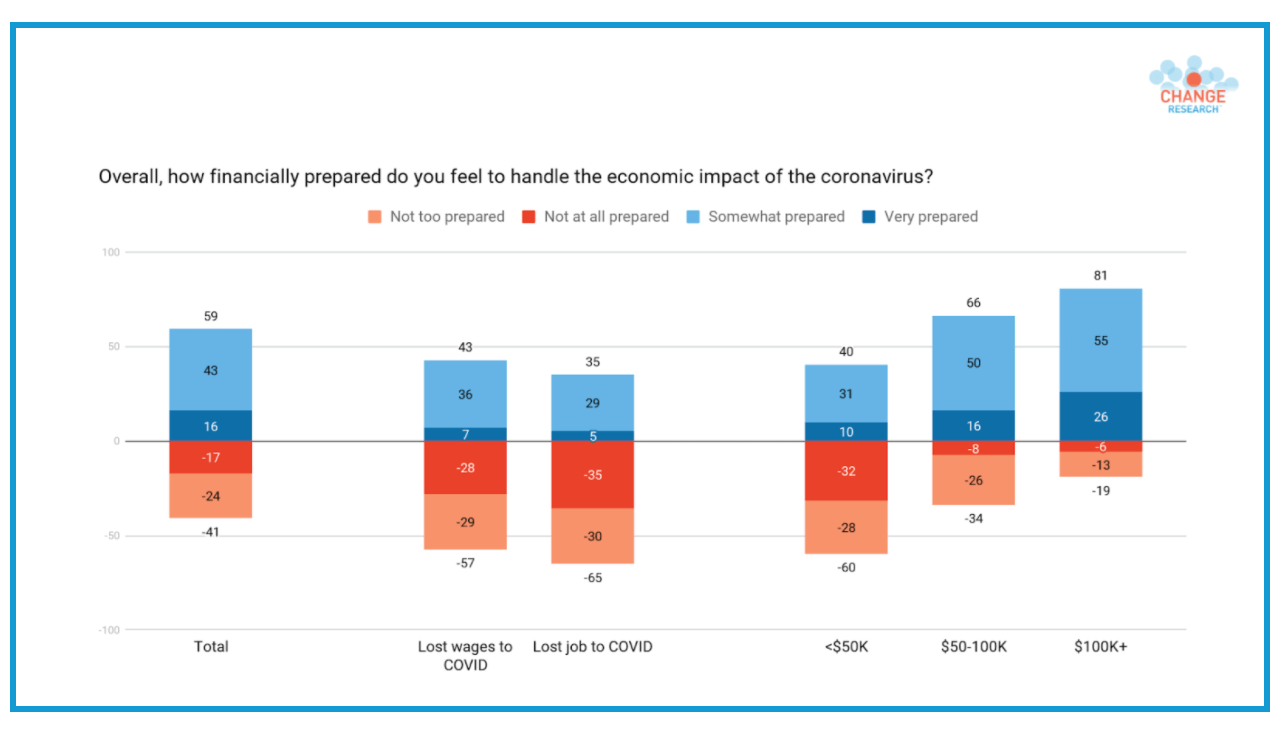
Voters Are More Concerned About Health and Safety Than Finances or the Economy
When asked about the impact of coronavirus, respondents expressed more concern about the health and safety of their family and the nation — 82% and 79% respectively — than their personal financial situation and the national economy (18% and 21% respectively).
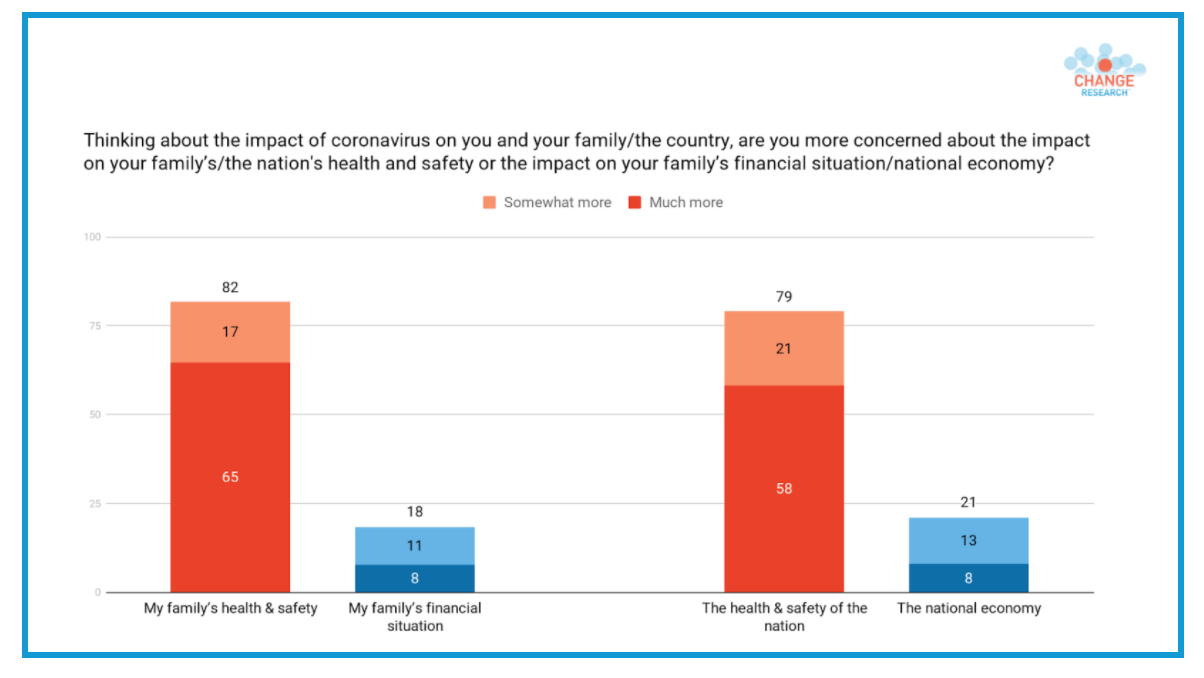
Voters have the most intense concerns about immediate health and safety issues: the lack of personal protective equipment for doctors and ventilators for patients, people not taking social distancing seriously enough to stop the spread, and getting sick. Nearly all voters now report that they are engaging in better hygiene and social distancing measures and there is strong bipartisan support for such policies (98% of Democrats, 89% of independents, and 84% of Republicans support).
Approval of State and Federal Government Response to Coronavirus
Voters are largely more satisfied with the responses of the state and local governments than the federal government. 69% of Floridians indicated that their state government has not been aggressive enough. 59% of voters say the national government has not been aggressive enough in response to the outbreak.
A slim majority of battleground voters disapprove of Trump’s handling of the coronavirus, as they did in March. There has been an increase in intense approval and disapproval and Donald Trump’s COVID performance ratings now match his overall job performance numbers.
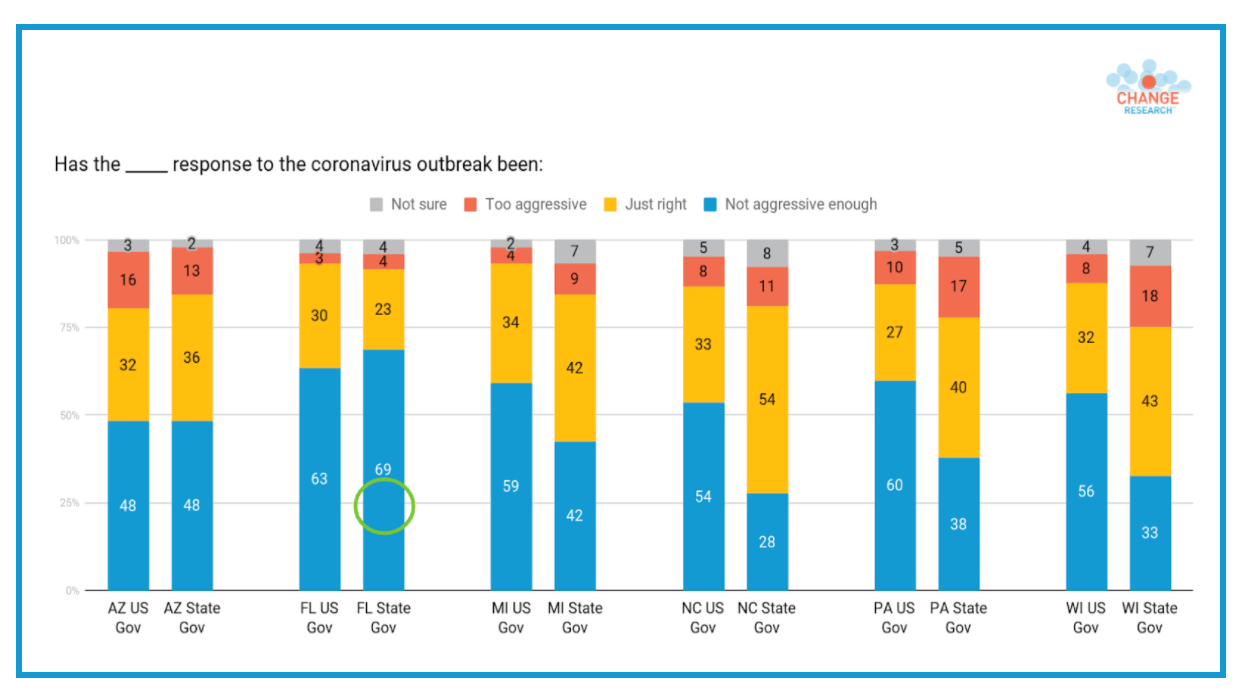
There is strong bipartisan support for using the Defense Production Act to compel companies to produce medical equipment to address the crisis (94% of Democrats, 84% of independents, and 85% of Republicans support) and for the massive $2 trillion COVID relief bill that recently passed (88% of Democrats, 76% of independents, and 87% of Republicans support).
Battleground Toplines
Battleground Sample & Methodology
National Companion Survey Toplines
For media inquiries, please email [email protected]
Change Research surveyed 2,448 likely general election voters in the battleground states of Arizona, Florida, Michigan, North Carolina, Pennsylvania, and Wisconsin from April 2-3, 2020. The margin of error as traditionally calculated is ±2.0% for the full sample. Change Research reaches voters via targeted online ads that point people to an online survey instrument. Our Dynamic Online Sampling establishes and continuously rebalances advertising targets across region, age, gender, race, and partisanship to dynamically deliver large samples that accurately reflect the demographics of a population. Post stratification was done on state, gender, age, race, education, and 2016 presidential vote.
A national companion survey of 1,200 likely voters was conducted April 2-3, 2020. The margin of error as traditionally calculated is ±2.8% for the full sample, and post stratification was done on region, gender, age, race, education and 2016 vote.
This is the second in a series of bi-monthly battleground state and national surveys that CNBC & Change Research will conduct in 2020. The first wave was conducted March 9-11 among 2,483 likely general election voters in the battleground (MOE ± 2.0%) and among 1,541 interviews likely general election voters nationally (MOE ± 2.5%)
